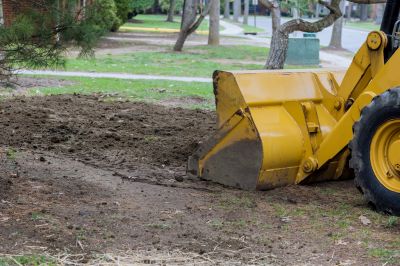
Richmond - Yard Grading
Get help with your yard grading needs. Fill out the form above and we will connect you with local pros in your area. Yard grading is a crucial process that offers numerous benefits for homeowners. Proper yard grading involves leveling the ground, ensuring proper drainage, and creating a stable foundation for landscaping projects. One of the primary advantages of yard grading is the prevention of water accumulation and flooding. By directing water away from your property, yard grading helps prevent water damage to your home's foundation, basement, and landscaping. Additionally, yard grading promotes healthier plant growth by preventing waterlogged soil and improving the distribution of nutrients. It also enhances the aesthetic appeal of your outdoor space by creating a more even and visually pleasing landscape. Moreover, yard grading can help reduce the presence of pests and insects that thrive in damp environments. Overall, yard grading is an essential investment that improves the functionality, appearance, and longevity of your outdoor area.Yard grading refers to the process of leveling the ground in a yard or outdoor space to ensure proper drainage and prevent water pooling. It involves reshaping the terrain by adding or removing soil to create a smooth and even surface. Yard grading helps to direct water away from the foundation of a building, preventing potential damage and erosion. This process is typically done using specialized equipment, such as a bobcat or a tractor, and may require the expertise of professionals who are experienced in land grading. Proper yard grading is essential for maintaining a healthy and functional outdoor space.

